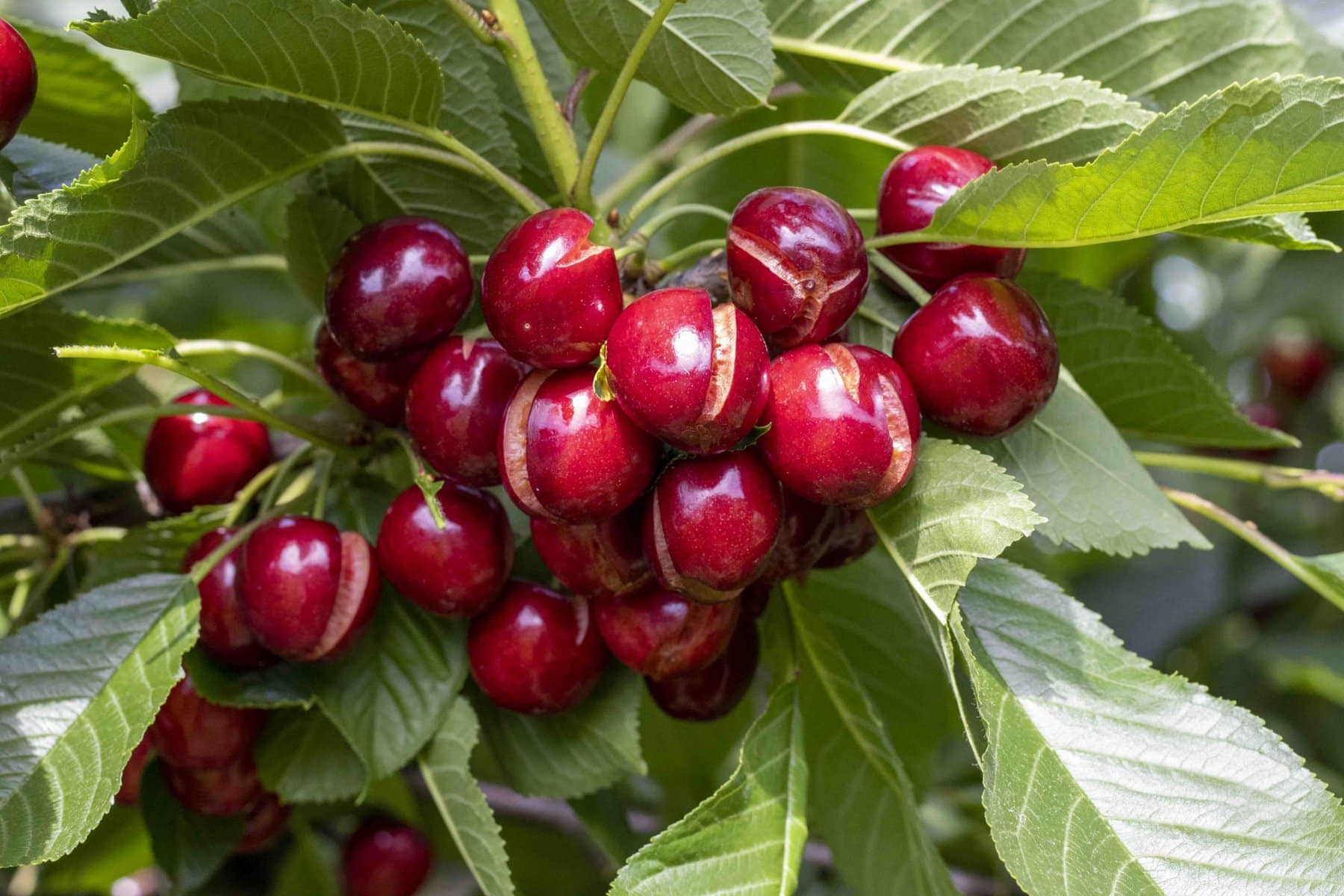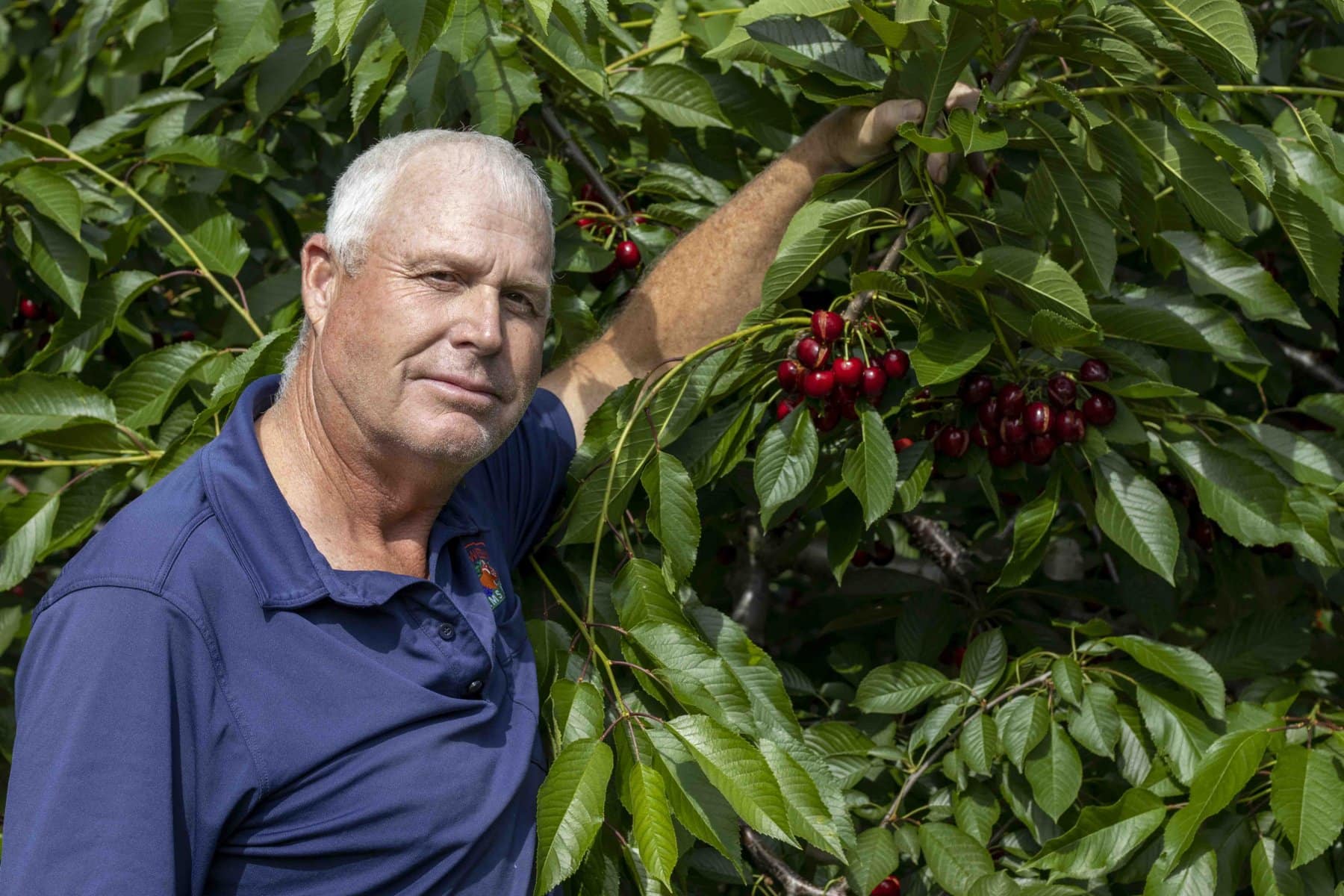Heavy rains have damaged this season’s cherry crop, but there is a silver lining.
“There’s an old saying that all the old-time farmers say — you can’t get big peaches and nectarines without cracked cherries,” said tender fruit grower Scott MacSween, who operates Quiet Acres Farm in Niagara-on-the-Lake.
Though the rain over the past few weeks reduced the cherry crop for a lot of farmers, it helped those growing peaches, plums and nectarines.
“It saved us a lot of work watering and irrigation,” he said.
The rainfall meant many farmers didn’t have to worry about watering their peaches, plums and nectarines, a fairly expensive task — especially when you have 250 acres of tender fruit as MacSween does.
“Not many of us have many cherries left, but that’s the only crop this rain has hurt,” he said.
Edmund Qin, owner of Parkway Orchards along the Niagara Parkway, said up to 40 per cent of his cherry trees have been affected by the heavy rain in late June and early July.
He said also that compared to last year he has 50 per cent fewer cherries due to the cold and wet spring and lack of active bees.
“I don’t have much left. Normally I can last to July 10 or 11,” Qin said.
Now, he said he doesn’t know.
MacSween has 10 acres of cherry trees and due to the rain thinks he’s lost about five acres to cracked cherries.
In a good year, he’d normally have five acres of crop for his family’s market on Lakeshore Road and sell another five acres to grocery stores such as Loblaws.
With this year’s reduced crop, he’ll only be supplying his market, he said.
Cherries are his most valued crop, he added.
“I would make more on an acre of cherries than I would any other tender fruit crop,” said MacSween.
He said he earns about $20,000 per acre of cherries and estimates he’ll lose about $100,000 worth of cherries due to the rain.
Major rainfalls like Niagara has experienced are the culprit. If it rains a lot when the cherries are mature and ready to be picked, the cherries absorb the water and then crack open.
“(It’s) as if you’ve taken a knife and just cut it open,” said MacSween.
When cherries to crack, they become unsellable.
“It’s unfortunate, but it all comes with growing fruit, especially if you’re a sweet cherry grower,” he said.
MacSween hopes he’ll make up for what he lost with his peaches, nectarines and plums.
He said the peach crop is his “bread and butter” and that he has a “beautiful crop” of peaches this year.
Michael Kauzlaric from the Vineland Innovative Research Centre said only the fruit is affected, not the trunk of the tree.
Not all varieties of cherries were affected on MacSween’s and Qin’s farms, but many were.
When the cherries crack and can’t be sold, which happens every four years, MacSween said he has to leave them behind on the land.
This means more work for the seasonal workers on his farm, he said, because now they have to sort through the branches and assess which ones are salvageable.
Consumers won’t buy the damaged fruit, so the unsellable cherries become an all-you-can-eat buffet for the birds.
“That’s why a lot of us have small acreages of cherries: because they break your heart,” MacSween said.
However, Kauzlaric says people should be more open to buying fruit that has imperfections.
“Consumers should be willing to accept not-so-perfect fruit as it only comes around every 12 months,” he said.












